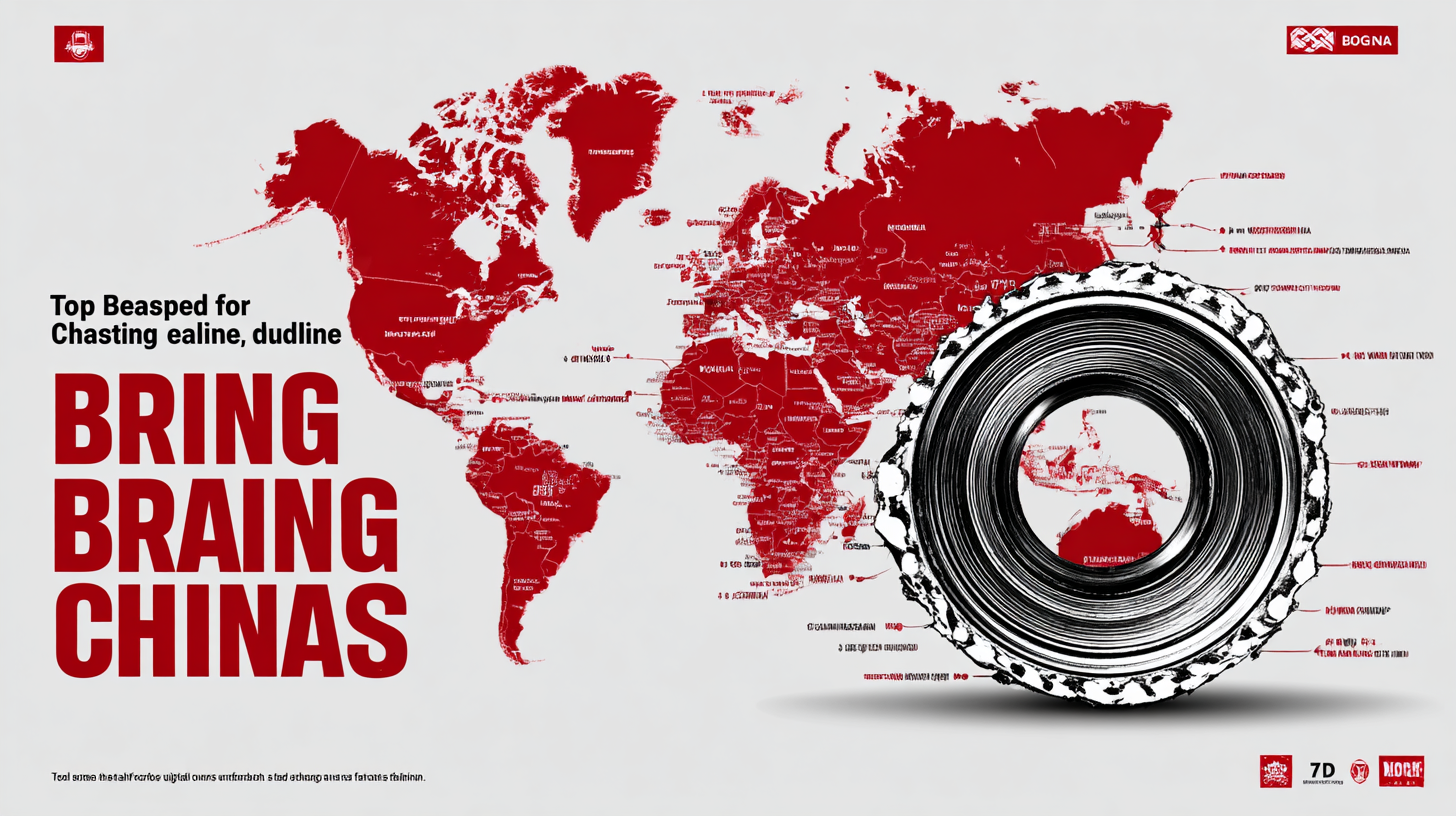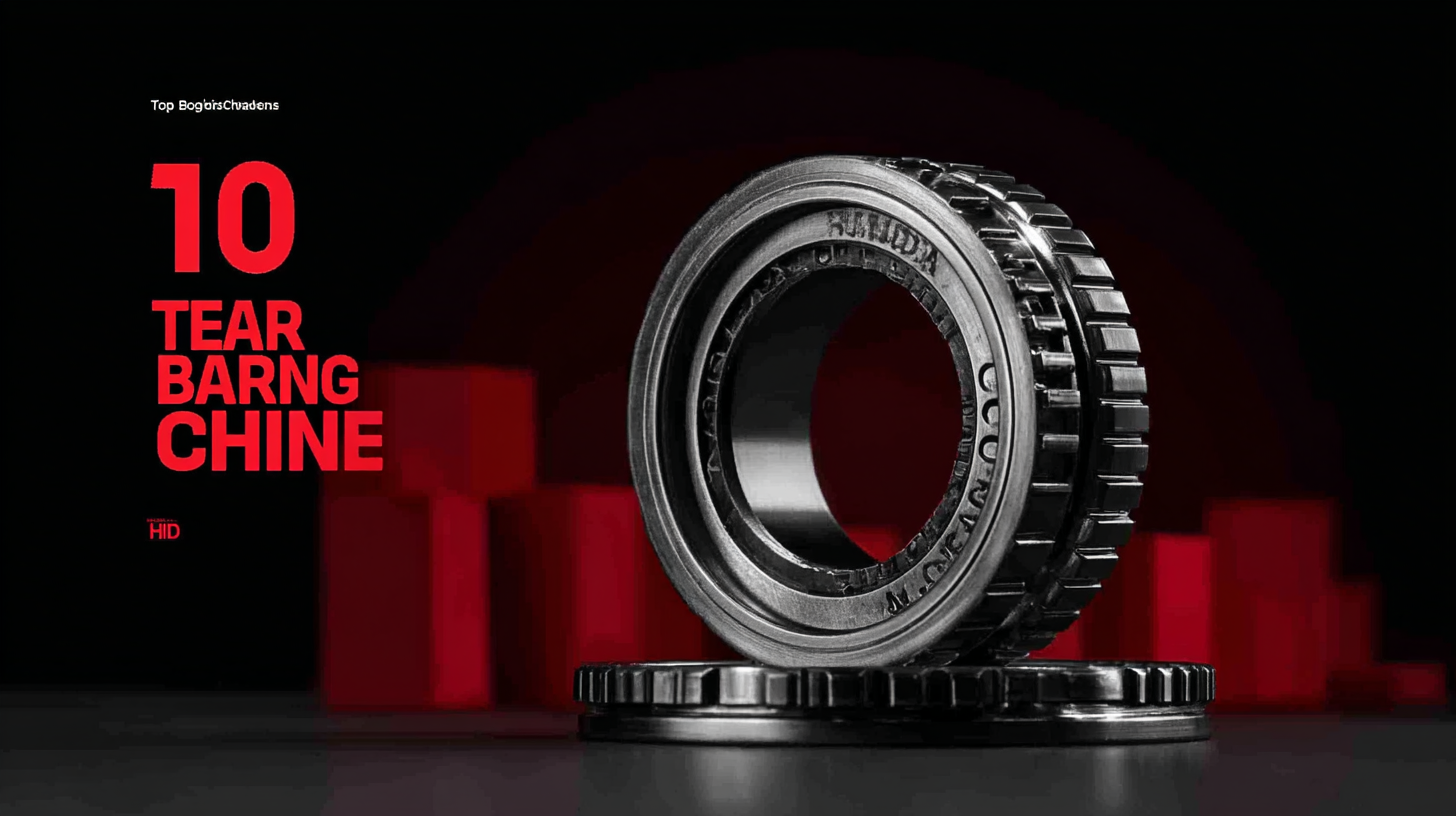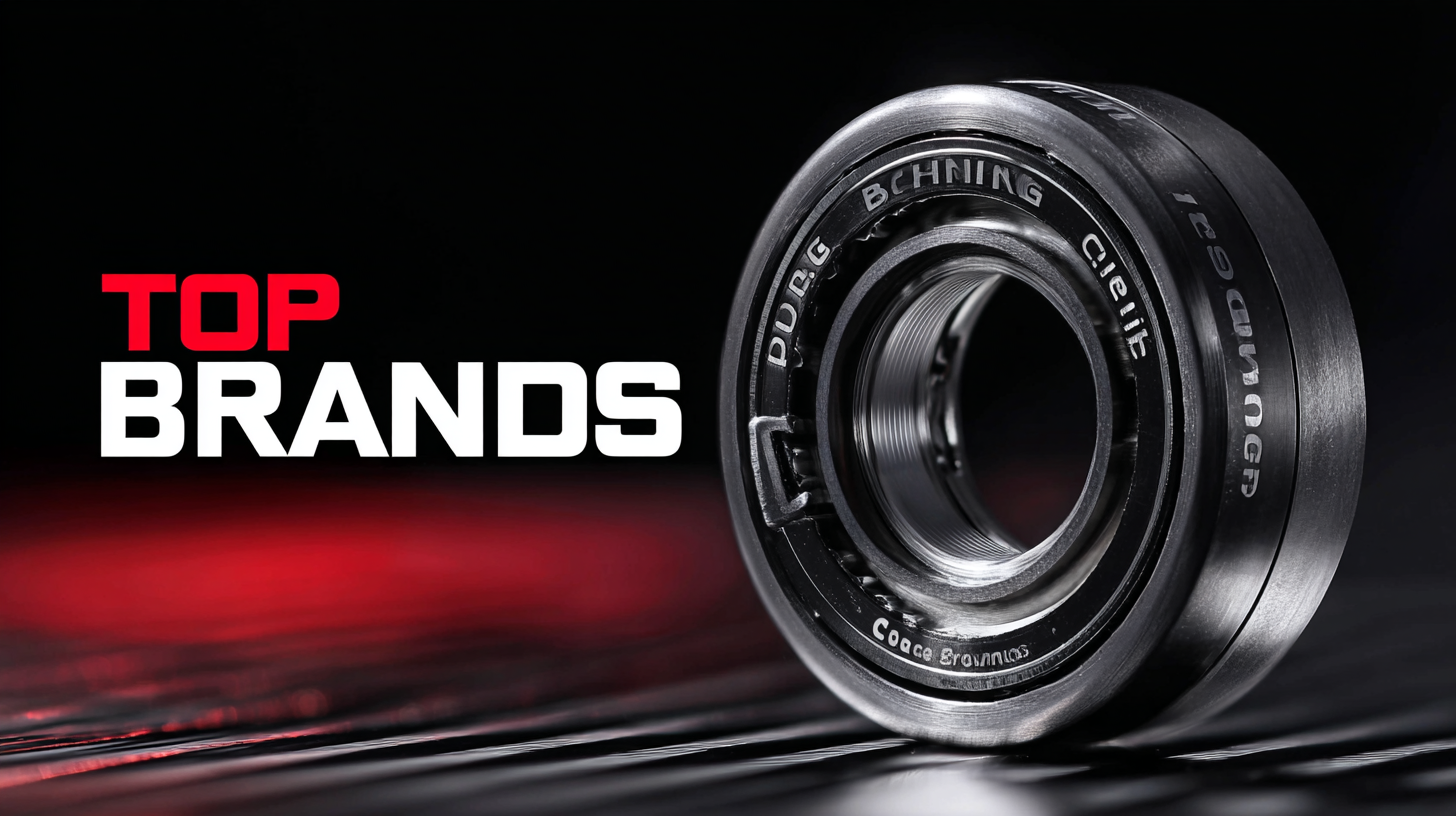Top Challenges Faced by Consumers When Choosing the Best Bearing Brands in China
When navigating the intricate landscape of the bearing market in China, consumers face a myriad of challenges in selecting the right products from the Top 10 Bearing Brands in China. According to a recent report by MarketsandMarkets, the global bearing market is projected to reach $100 billion by 2025, with China's market reflecting significant growth driven by its manufacturing sector. However, factors such as product quality, brand reputation, and pricing competitiveness often complicate the decision-making process for consumers. Additionally, a study by Statista indicates that nearly 60% of consumers prioritize durability and reliability when choosing bearing brands, underscoring the critical need for informed choices amidst a sea of options. As we explore the benefits of top-tier bearing brands, it becomes evident that understanding these challenges is essential for consumers aiming to make the best investment for their needs.

Understanding the Importance of Bearing Quality in Consumer Choices
When consumers set out to choose the best bearing brands in China, understanding the importance of bearing quality becomes a crucial factor in their decision-making process. High-quality bearings significantly impact performance, durability, and the overall cost of maintenance. Investing in dependable bearing brands can lead to fewer breakdowns and enhanced machinery longevity, saving money in the long run.
Tip 1: Research Brand Reputation
Before making a purchase, consumers should investigate the reputation of different bearing brands. Look for customer reviews, industry feedback, and certifications to gauge the quality and reliability of the products offered.
Tip 2: Assess Material and Manufacturing Standards
The materials used in manufacturing bearings play a vital role in their performance. Consumers should prioritize brands that adhere to stringent quality control processes and use high-grade materials, as this often results in superior product performance and lifespan.
Tip 3: Consider After-Sales Support and Warranty
A solid warranty and responsive after-sales support can be indicative of a brand's commitment to quality. Always check what warranties are offered and the brand's approach to customer service to ensure peace of mind with their purchase.

Key Factors to Consider When Evaluating Bearing Brands in China
When evaluating bearing brands in China, consumers face several key factors that can significantly influence their decision-making process. One of the most critical aspects is the brand’s reputation in the market. A well-established brand with positive reviews is often seen as a reliable choice, as it indicates consistent quality and customer satisfaction. Additionally, checking for certifications and industry standards can help assess a brand's credibility and adherence to quality control measures.
Another essential factor is the range of products offered by each brand. Consumers should look for manufacturers that provide a variety of bearings suited for different applications, ensuring they can find the exact type they need. Inquire about the materials used and the technology behind the production process, as these elements can directly affect the performance and longevity of the bearings.
Tips: Always consider the after-sales support provided by the brand. A company that offers comprehensive customer service, including warranties and maintenance advice, can be invaluable. Furthermore, compare pricing across different brands, but remember that the cheapest option is not always the best. Quality should never be compromised for cost, as this can lead to higher replacement costs in the future.
Navigating Price vs. Quality: Making Smart Bearing Purchases
When consumers are on the journey to select the best bearing brands in China, they often find themselves at a crossroads between price and quality. The bearing industry is projected to grow at a compound annual growth rate (CAGR) of 7.2% from 2021 to 2026, indicating a robust demand for high-quality products. This growth is driven by the increasing applications in automotive, aerospace, and industrial machinery sectors. However, many consumers face challenges when trying to balance the cost-effectiveness of their choices with the need for reliability and longevity in bearing performance.
According to a recent report by MarketsandMarkets, around 50% of bearing purchasers prioritize quality over price, recognizing that a higher initial investment may lead to significant savings in maintenance and downtime costs. A durable bearing can enhance operational efficiency and reduce unexpected failures, which can be costly in the long run. Consumers are advised to thoroughly assess not just the sticker price of bearings but also their specifications, manufacturer reputation, and user reviews to make informed decisions. Ultimately, navigating this price versus quality debate requires careful consideration and awareness of how the right selection can tremendously impact their overall operational success.

Consumer Reviews and Reputation: The Role of Feedback in Brand Selection
When it comes to selecting the best bearing brands in China, consumer reviews and reputation play a pivotal role in brand selection. According to a report by MarketsandMarkets, approximately 70% of consumers rely on online reviews before making a purchase decision. This statistic underscores the importance of feedback in the bearing industry, where the performance and reliability of products are critical. Brands that consistently receive positive reviews are more likely to attract new customers, as trust in a product can significantly influence buying behavior.
Furthermore, reputation management is essential, given that the Chinese bearing market is projected to grow at a CAGR of 5.0% between 2021 and 2026. As competition becomes fiercer, established brands are increasingly focusing on their online presence and the quality of customer interactions. A survey by Deloitte found that 93% of consumers read online reviews prior to making a purchase. This shows that, for manufacturers, maintaining a solid reputation through quality feedback is not just advantageous; it's a necessity. By addressing consumer concerns and actively engaging with feedback, brands can enhance their reputation and influence consumer choices in a crowded marketplace.
Top Challenges Faced by Consumers When Choosing the Best Bearing Brands in China
Avoiding Common Pitfalls: Mistakes to Watch Out for When Choosing Bearings
When selecting bearings, consumers often overlook critical factors that can lead to poor choices. One common pitfall is neglecting the importance of understanding the specific requirements of their applications. Different types of bearings serve distinct functions and have unique characteristics, so failing to match the bearing type with the application can result in reduced efficiency and premature failure. Taking the time to thoroughly assess the operational environment, load conditions, and required lifespan can significantly enhance selection accuracy.
Another mistake is relying solely on brand reputation without considering other essential aspects such as material quality, manufacturing standards, and after-sales service. While recognized brands often signify reliability, not all products from these brands are created equal. Consumers should investigate the specifications and performance data of the bearings they consider. Additionally, checking for certifications and compliance with international quality standards can further ensure that they are making a wise investment. Engaging with manufacturers or distributors and requesting detailed product information can also provide valuable insights that aid in making an informed decision.

Home
Products
Industrial Bearings
Deep Groove Ball Bearings
Self-Aligning Ball Bearings
Angular Contact Ball Bearings
Cylindrical Roller Bearings
Taper Roller Bearings
Spherical Roller Bearings
Bearing housing or Accessories
Miniature Bearing
Thrust ball bearing
Radial Spherical Plain Bearing
Pillow Block Bearing
Needle Roller Bearings
Automotive Bearings
Agricultural Bearings
Special Material Bearings
Industry Application
About Us
News
Contact Us





